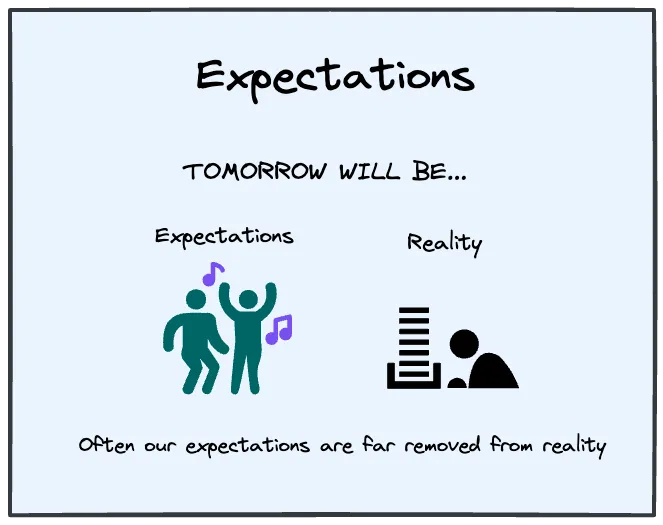Expectations
Notes
our mental state / level of our happiness is dependent not on the objective facts of our reality, but rather our Subjective Reality and our perceptions. We see the world not through objective lens but rather through the Narratives we tell ourselves. Getting less than expected will lead to unhappiness, while getting more than expected will lead to happiness. The obvious conclusion is similar to Stoicism which recommends lowering our expectations as low as possible, to be both best prepared and the most satisfied when in reality things will be better than expected. This is how to beat the Hedonic Treadmill that creates a baseline based on our expectations.
However, it is very difficult to avoid giving too much credit to expectations, whether internal or externals. In both cases, we set ourselves a bar that shows how great the distance between who we are and who we "should" be Comparisons. That is because expectations are a natural process of human thinking. Since we are capable of forming predictions, we sometimes treat them as an absolute fact despite not happening it. If we predict that something will happen, we expect it to happen, which means our baseline has already shifted simply by thinking about it, and we become too attached to it as if it already exists.
Similarly, when others expect something of us, it is as if in their eyes this is who we are, and now it is up to us to become the person they want (or dictate) us to be, regardless on how we view ourselves and what we believe is right for us Is vs ought. When we fail to live up to these Perfectionism expectations, we often feel stressed frustrated and Burnout, and might even revert to a Fixed Mindset, thinking that if we fail one thing we will fail them all.
Visual

Overview
🔼Topic:: Wellbeing (Map) ◀Origin:: Behave (book) 🔗Link::